Sun 20.Apr.2014
Jerez de la Frontera, Andalucia, Spain
A flat grey sprinkly Easter Sunday, stopping just short of blustery. I am sipping a
capuccino, trying to nibble slowly enough on three tapas to stectch them out to the
time it will take me to finish typing this. This cafe is the only comfortable spot
I have found here in Jerez for sitting and typing. It lacks wi-fi though; I need to
upload everything from the patio of my hotel.
Jerez de la Frontera, an hour and a bit south of Sevilla in Spain, is most
famous to the world at large as the home of sherry wine. Even though that heritage
is wasted on me as non-drinker, the bodegas, as the sherry wineries are called,
loom large among the city's tourist attractions.
Except for the week that I have been here. Holy Week trumps everything else as a
spectacle. We'll get to that in a moment; first a few images of the town.
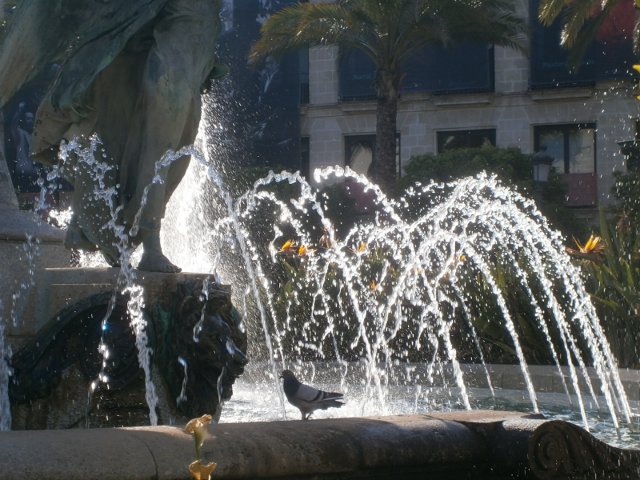
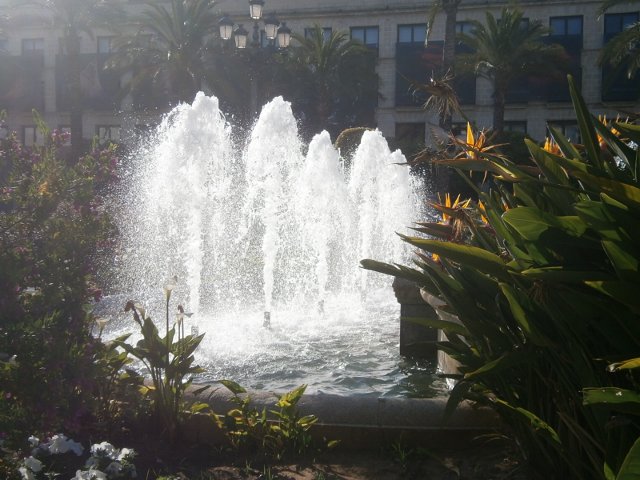
They go for plazas and fountains here. The exuberant leaping European fountains,
not the low bubbling Moorish type that you often find in Andalucia. I caught the last
light on these two, when their surroundings were arleady in shadow.
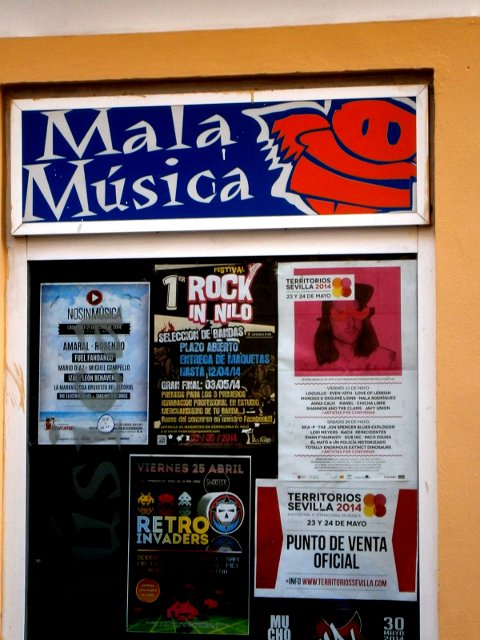
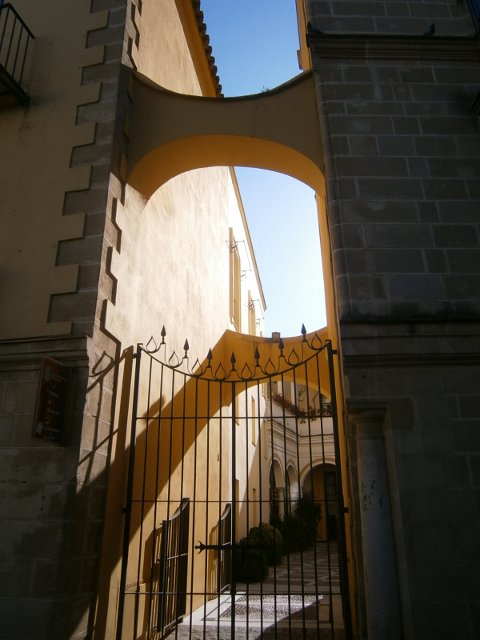
No comment.
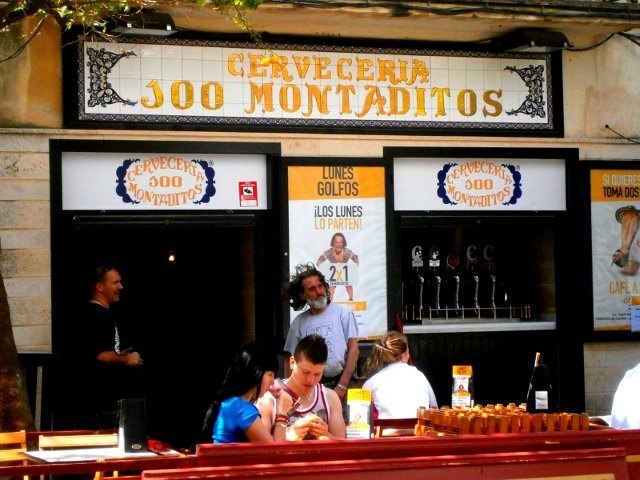
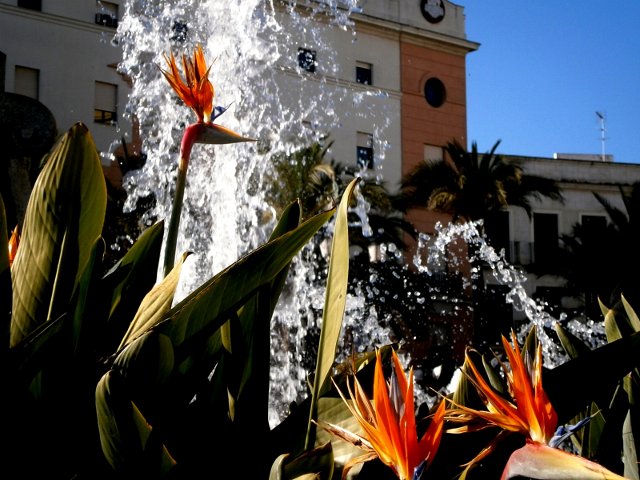
Here is a name to live up to. A montadito is a kind of tapa featuring
something "mounted" on a sliced bread roll. Any bar here probably has montaditos,
or their larger cousins bocadillos. I don't know whether 100 Montaditos
means a hundred varieties, or just extreme face-stuffing.
For the rest of the page, we are dealing with the foofaraw of Holy Week.
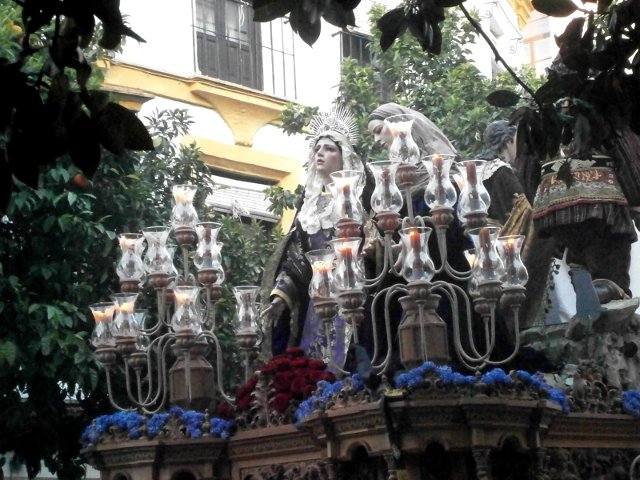
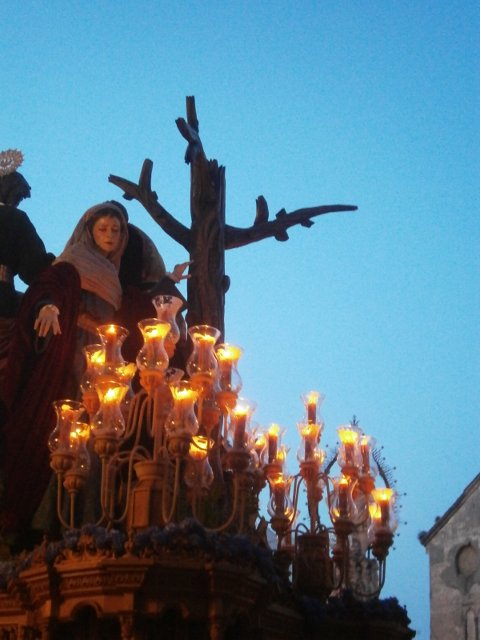
For seven days and nights culminating in Good Friday, the afternoons and nights are
given over to parades commemorating the Christian crucifixion story.
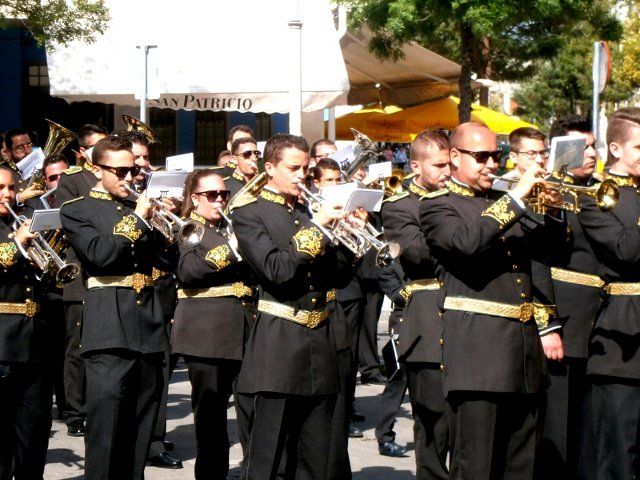
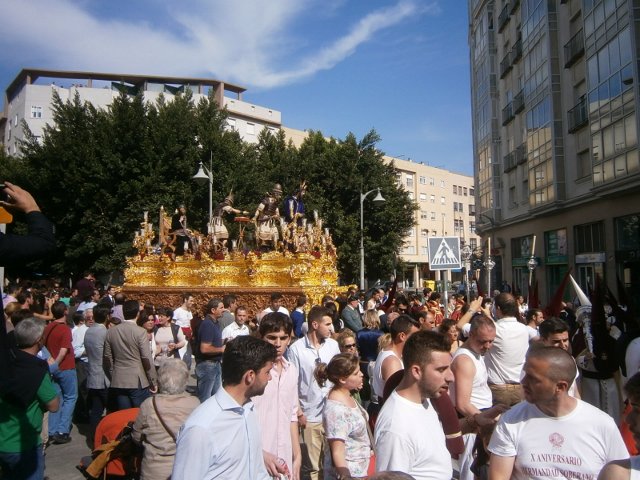
The parades are actually highly stylized funeral processions. No Souza marches or
baton twirlers here. They march to a slow muffled drum, in the simple left left
left-right-left cadence. The brass band, if there is one, plays ponderously, with
piercing high trumpet lines. It sounds like ... well, the soundtrack from a hollywood
criucifixion movie.
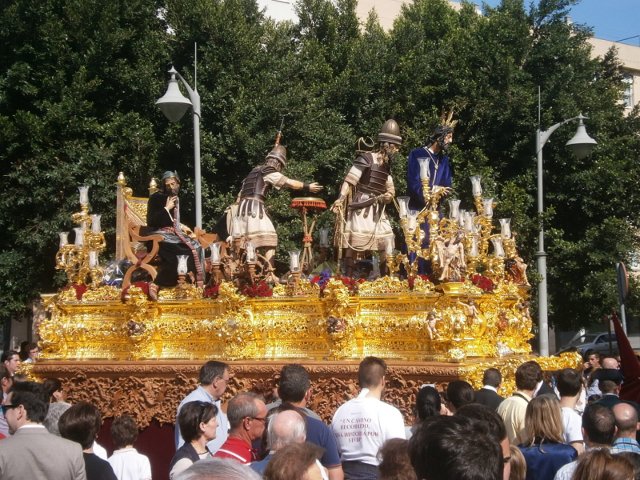
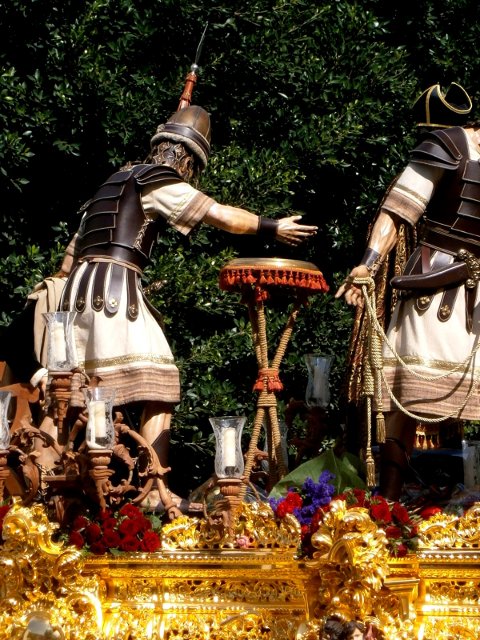
Each procession climaxes with a float, elaborately depicting some holy scene, usually
from the crucificxion story, or depicting the Virgin Mary.
The floats are always carried on people's shoulders, in the manner of a coffin, but
much larger. Where a coffin might have six carriers, these floats have twenty or more.
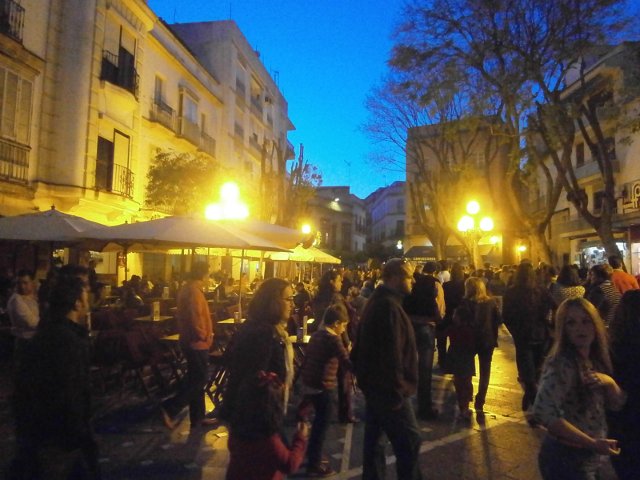
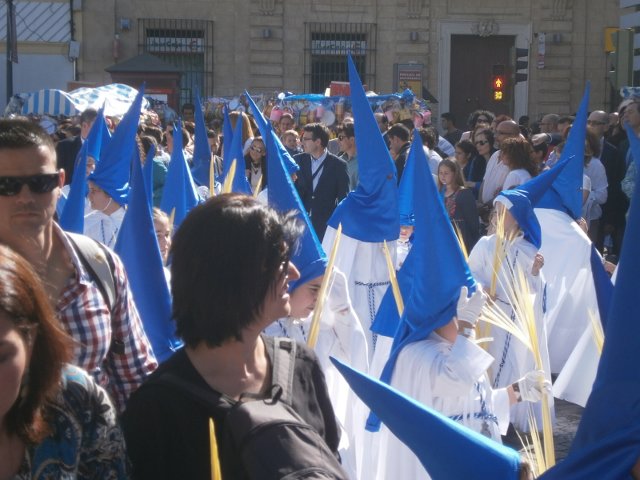
The hermandades (krewes, so to speak) always wear full-coverage robes and
hoods, in various colors and designs. For an American, the pointed hoods and face
masks give them an unfortunate resemblance to KKK outfits. For an unbeliever, it
can also evoke images of the Inquisition and the dark ages. (For film buffs, think
of the priests in Alexander Nevsky!)
If you harbor this sort of reservation, you may as well keep it to yourself while
you are here. This is a community festival, and there is a celebratory spirit
underneath it all, whatever grief is involved in the nominal cause being
commemorated. Vendors sell goodies, kids set off toys that flash and spin, vendors
probably make the margin of profit that covers their taxes.
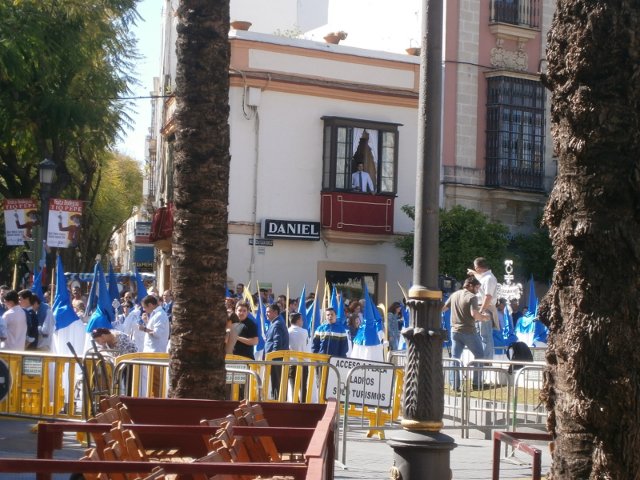
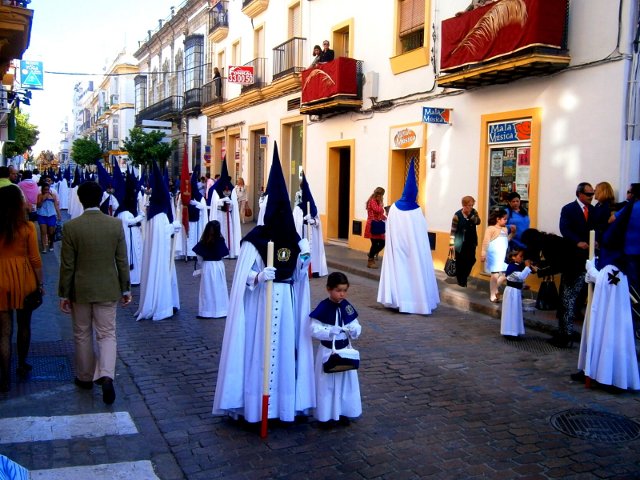
In the morning, the streets are all but deserted. After dawn, that is. At 4:00am
the squares and bars and streets are thronged as if it were Christmas shopping
season. For me, a full week was a bit over-doing it, but I am just a visitor.
It is their big holiday, and they they do it their own way.
Sevilla does it all on such a grand scale that people come from who knows how far
for the occasion, and the price of lodging doubles, which is one reason I am
here in Jerez. At least six 24-hour TV channels carry nothing but footage of the
processions in the various cities in the region. Two cover Jerez only, one seems
to do Malaga, others the cities of the Costa de la Luz, such as Cadiz and Huelva.
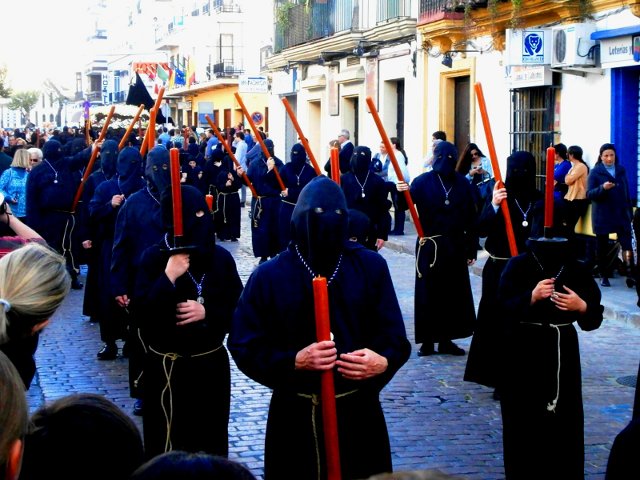
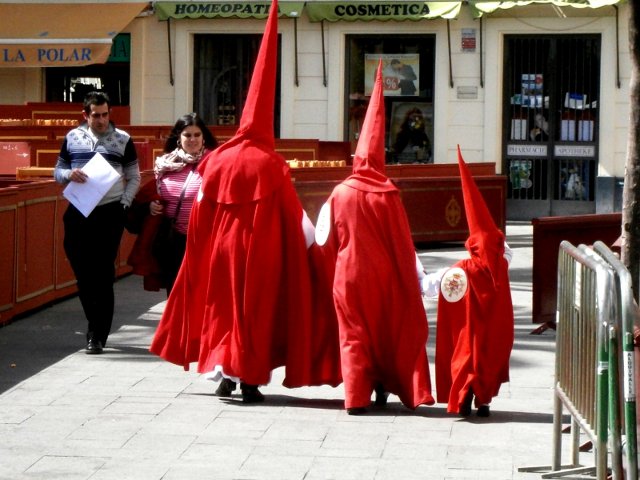
Saturday, everything was suddenly calm again. Today, Easter Sunday itself, feels
like a very ordinary day. A writer of cliches might say, "as if it were all a dream".
Of course I'd never use hackneyed language like that.

















